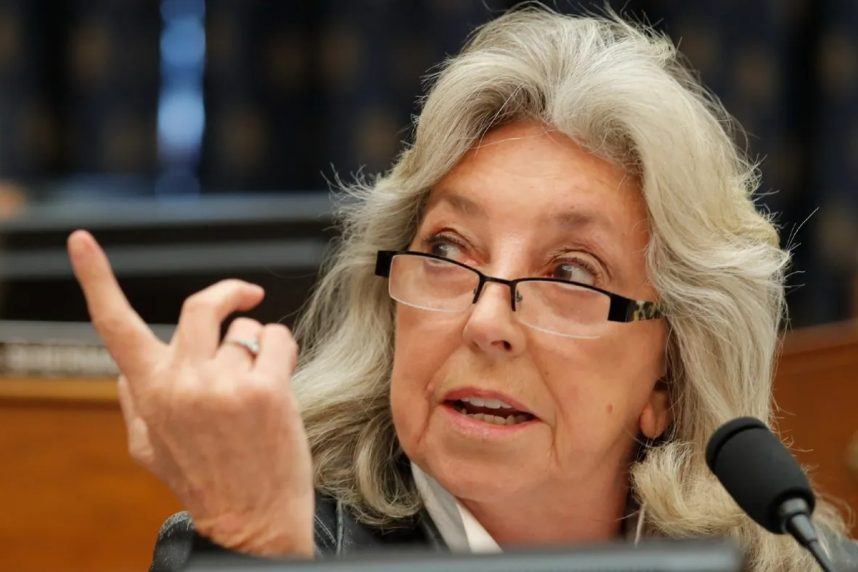Gaming Industry Opposes Legislation to Allocate Sports Betting Excise Tax

Posted on: January 16, 2024, 12:07h.
Last updated on: January 16, 2024, 12:26h.
Federal legislation that would allocate the U.S. government’s 0.25% sports betting excise tax for problem gambling research and treatment is opposed by the preeminent commercial gaming trade group.

U.S. Sen. Richard Blumenthal (D-Connecticut) and Rep. Andrea Salinas (D-Oregon) last week introduced the Gambling Addiction, Recovery, Investment, and Treatment Act, stylized as the GRIT Act.
The American Gaming Association (AGA) opposes Blumenthal and Salinas’ proposal. The casino lobby has for years called on Congress to terminate the sports betting excise, a tax established in 1951 to combat illegal bookmakers.
Unintended Consequences
The AGA says the excise tax makes it more difficult for legal sportsbooks in the nearly 40 states that allow such gambling to compete with offshore, unregulated online bookmaking platforms that don’t pay the tax.
“Congress enacted the federal sports betting excise tax in the 1950s as a tool to prosecute illegal gambling operations. Today, this antiquated policy puts the nascent legal market at a competitive disadvantage against offshore illegal operators who do not pay any taxes and prey on vulnerable customers,” said Chris Cylke, the AGA’s vice president of government relations.
The AGA opposes the GRIT Act and will continue to educate Congress about why enacting bipartisan legislation to repeal the excise tax on legal sports betting operators is necessary to ensure we can effectively migrate Americans into the protections of the regulated market,” Cylke added.
U.S. Rep. Dina Titus (D-Nevada) cochairs the House Congressional Gaming Caucus. Titus introduced legislation last year with her Gaming Caucus cochair, Rep. Guy Reschenthaler (R-Pennsylvania), that sought to end the federal sports betting excise tax.
Titus also opposes the GRIT Act. She says sportsbook and casino taxes already fund problem gambling research, rendering the federal bill “redundant.”
More Funding Needed
Blumenthal and Salinas say state health agencies and problem gaming organizations remain severely underfunded in the wake of continued gaming expansion. In 1999, just eight states had commercial casinos. Today, there are 35 states with slot machines.
“Commercial gaming revenue reached $60.4 billion in 2022, passing the previous record of $53 billion set in 2021,” the AGA’s State of the States 2023 report revealed.
Commercial gaming generated nearly $13.5 billion in 2022 gaming taxes paid to state and local governments. The 2022 tax money represented a more than 15% increase from 2021.
While it’s true that most commercial gaming states require licensed operators to fund problem gaming research and programs, the dedicated tax benefit is often only a small percentage of the overall gaming tax. In New Jersey, for instance, casino taxes primarily benefit the elderly.
The state’s Casino Control Act mandates that each licensed casino pay $500K annually to the Council on Compulsive Gambling of New Jersey and $100K for compulsive gambling treatment programs. Each iGaming licensee is required to commit $250K each year to the Compulsive Gambling Council.
Keith Whyte, executive director of the National Council on Problem Gambling, a Massachusetts-based nonprofit that doesn’t oppose nor support further expansion of gaming, says the GRIT Act would provide additional investments into gambling addiction research, prevention, and treatment.
Despite the prevalence of gambling addiction in the United States, no federal agency is tasked with addressing it, and no federal funds are designated for treatment or research,” Whyte said.
The federal government’s sports betting excise tax benefit grew from $38.7 million in fiscal year 2020 to $110.7 million in fiscal year 2021. The money currently goes to a general fund held by the U.S. Treasury.
Source: casino.org
